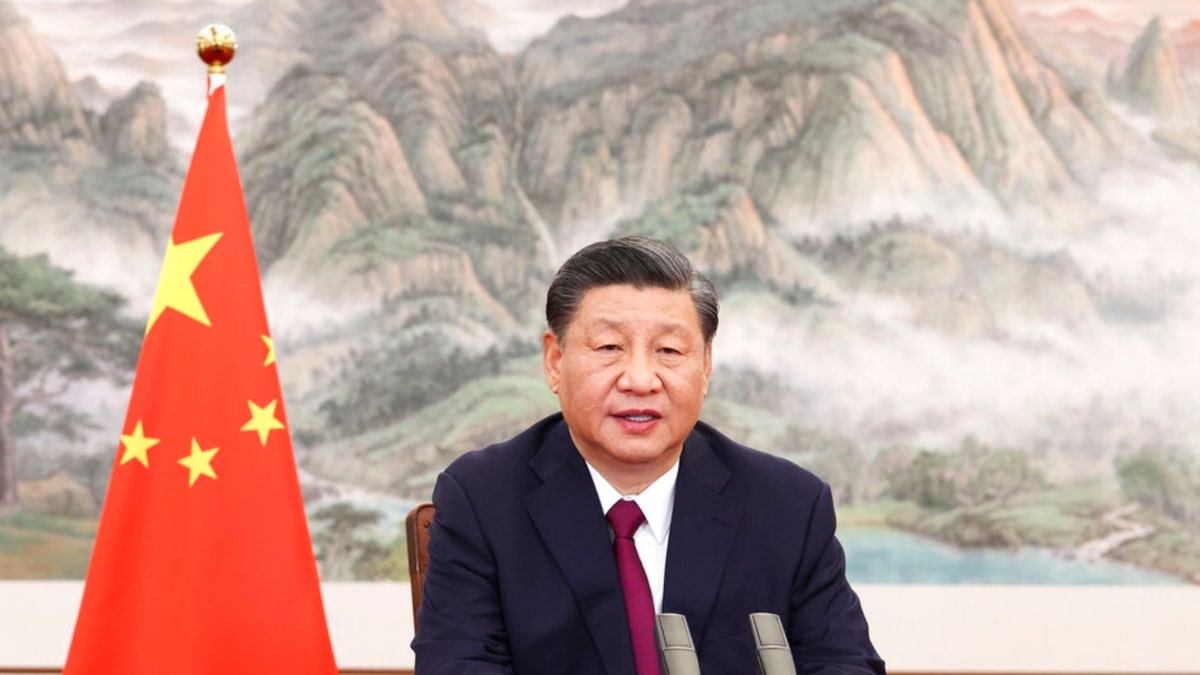Fox News Flash top headlines for April 21
Fox News Flash top headlines are here. Check out what's clicking on Foxnews.com.
Chinese President Xi Jinping said Thursday that his government supports talks to resolve international disputes.
He said China remains "committed to respecting the sovereignty and territorial integrity of all countries" and non-interference in their internal affairs.
Xi also decried "wanton use" of sanctions.
"We stay committed to peacefully resolving differences and disputes between countries through dialogue and consultation, support all efforts conducive to the peaceful settlement of crises, reject double standards, and oppose the wanton use of unilateral sanctions and long-arm jurisdiction," Xi said in a televised address.
China has maintained its support for Russia despite the war in Ukraine and has refused to call the conflict an invasion. It claimed Russia was provoked by NATO’s expansion.

In this photo released by China's Xinhua News Agency, Chinese president Xi Jinping delivers a speech via video link to the opening ceremony of the Bo'ao Forum For Asia in Bo'ao in southern China's Hainan Province, Thursday, April 21, 2022. (Huang Jingwen/Xinhua via AP)
It has also abstained or voted with Russia on recent proposals brought before the United Nations.
China says it maintains normal economic ties between the countries, even as other nations have imposed economic sanctions on Russia.
Foreign Ministry spokesperson Wang Wenbin said Thursday that China has "always opposed unilateral sanctions and long-arm jurisdiction that lack a basis in international law and are not authorized by the (United Nations) Security Council."
LLOYD AUSTIN MEETS WITH CHINESE COUNTERPART, ENDING 15-MONTH SILENT STREAK
"Sanctions are not the right way to de-escalate tensions, end wars or avoid casualties, but will only exacerbate conflicts, increase spillover and make the world pay more," he said.
U.S. Defense Secretary Lloyd Austin spoke with his Chinese counterpart on Wednesday for the first time since taking up the post more than a year ago.
Austin, who calls China the U.S. military’s leading long-term challenge, requested the telephone conversation with Gen. Wei Fenghe after months of failed efforts to speak with Gen. Xu Qiliang, the highest ranking uniformed officer in the Communist Party military structure.
Notably, Xi met with Russian President Vladimir Putin less than a month before the Feb. 24 invasion. Both countries then issued a joint statement affirming their "no limits" relationship.
Earlier this month, China said that its military staged exercises in areas opposite Taiwan in response to a meeting between U.S. lawmakers and Taiwanese President Tsai Ing-wen. The lawmakers also visited Japanese Prime Minister Fumio Kishida.
The trips come amid continued fears that China may move to invade Taiwan.
CLICK HERE TO GET THE FOX NEWS APP
Taiwan and China split during a civil war in 1949, but China claims the island as its own territory.
In addition, North Korea tested intercontinental ballistic missiles in March, prompting the U.S. to impose sanctions on five North Korean entities and Japan to issue its own penalties.
The Associated Press contributed to this report.










































